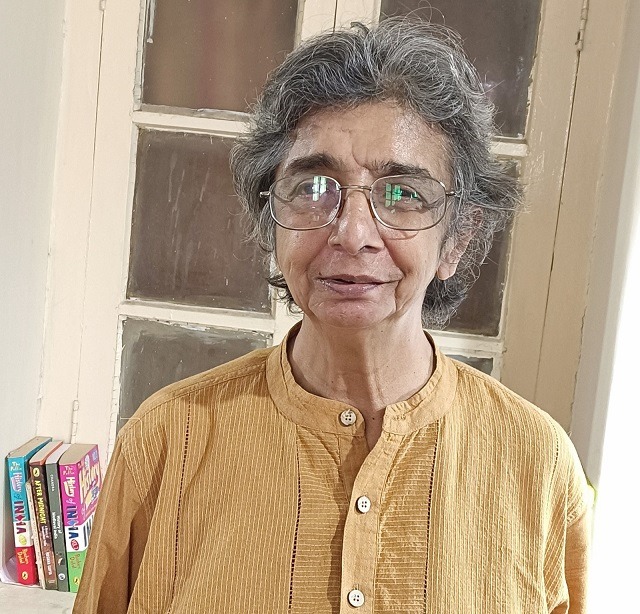
Teaching is an occupation that is full of learning: for the teacher. This is made especially so when the school encourages lateral flexibility and calls upon teachers to teach different “subjects”. The humanities, it is believed, can be taught at least up to standard X by all humanities graduates. So too with science and maths. Every teacher can and should be able to teach at least three “subjects” given enough notice and time for preparation which in schools (and colleges) is the long summer vacation. Many envy us teachers for this – i.e. the vacation! That is how teachers spend their vacation.
The geography teachers at Vidyaranya were to be away at the same time. So when I offered to teach Geography as well as English in standard VIII, everyone was satisfied. The wonderful thing about middle school is that children are old enough to be critical and not cowed down yet by the ultimate authority – examinations. Given the space, they will challenge the textbook; given the respect, they will not abuse their freedom to question their teacher, and given the bad textbooks we suffer, and the paucity of teachers, it is only the dialectical process of teaching-learning-teaching that can make education really fruitful.
We were still in the first month of the first term of the year. All faces were bright and eager, even though the monsoon had not come to Hyderabad yet. I was teaching parallel topics in the two sections. When section one accepted that when you travel East you gain time and add hours at the rate of one per 15 lines of meridian and subtract or lose time when you go West, I was reassured that my preparation had been adequate. It was section two that altered the very moorings and philosophical orientations of my life. The children cheerfully accepted that you have to add if you travel East, and subtract when you travel West, but Rohit was sure that you lose a day if you travel East, and gain a day if you travel West. Noel seconded this forcefully.
“I celebrate two birthdays when I go to America,” he said, and showed me that the textbook does show that December 25 is repeated if you go West, and I knew he was right. I hoped that the children had not noticed how relieved I was when the bell rang, bringing an end to my confusion. That is another thing about teaching. The bell rings ever so often, bringing all things, good and bad, to an end. I consulted my books that night and made out new index cards, checked old ones and went to bed with a prayer. The next day I went to class full of conviction. “When you add, you gain”. “Yes,” chorused the class. “When you lose, you subtract,” I continued, and they agreed.
“So, when you go East, you add. So you gain time, adding four minutes for every longitude. You subtract when you go West, thereby losing time.” “Q.E.D.” I thought to myself. But no. The class was passive and Rohit said, “we add hours when we go East but lose time.” This did not seem to be going too well and the bell was a long way to go yet. We read the textbook which the students said must be wrong, as it had been so often before. We stood around, perplexed. I sent for the globe to gain time. Then suddenly Zoeb said, “Teacher, you gain hours and lose days and gain days and lose hours, isn’t it, teacher ? Suddenly I knew they were right, as I was.
“It is like travelling into the future,” I said, making a distinction that had just dawned on us. “When you go into the past, you gain and repeat days, but lose time. Travelling into the future, you skip or lose days, but gain time.” The principle was the same, I realised and now share. Both historical and geographical time move in the same direction. If the East is ahead of the West, may that always remain so.
(The writer has a Masters in Adult Education from Jamia Millia Islamia. She has many years of teaching experience at the school level as well as ten years of experience in the book publishing industry. Her work has been published in newspapers and a few syllabus books as well. Lakshmi has retired and now lives in Hyderabad.)
The Vijayanagara Empire: Rise, Administration, and Decline

